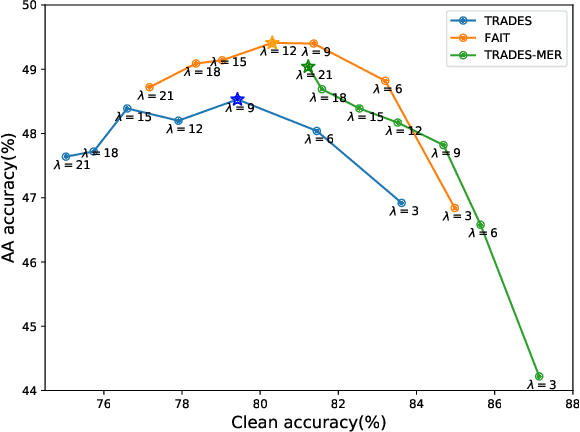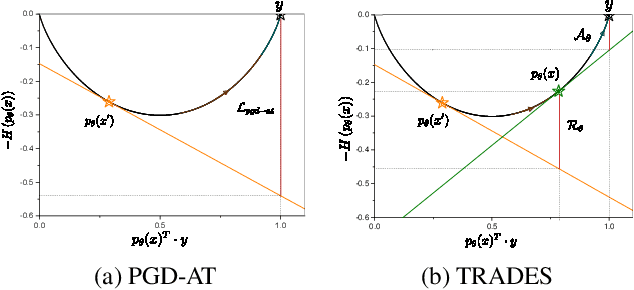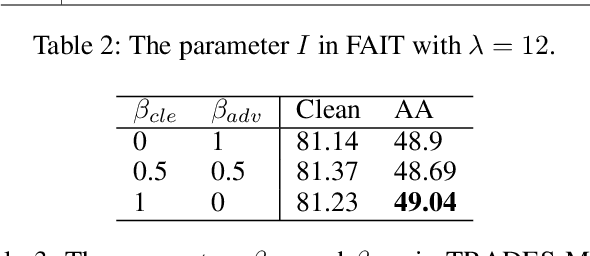Lower Difficulty and Better Robustness: A Bregman Divergence Perspective for Adversarial Training
Paper and Code
Aug 26, 2022



In this paper, we investigate on improving the adversarial robustness obtained in adversarial training (AT) via reducing the difficulty of optimization. To better study this problem, we build a novel Bregman divergence perspective for AT, in which AT can be viewed as the sliding process of the training data points on the negative entropy curve. Based on this perspective, we analyze the learning objectives of two typical AT methods, i.e., PGD-AT and TRADES, and we find that the optimization process of TRADES is easier than PGD-AT for that TRADES separates PGD-AT. In addition, we discuss the function of entropy in TRADES, and we find that models with high entropy can be better robustness learners. Inspired by the above findings, we propose two methods, i.e., FAIT and MER, which can both not only reduce the difficulty of optimization under the 10-step PGD adversaries, but also provide better robustness. Our work suggests that reducing the difficulty of optimization under the 10-step PGD adversaries is a promising approach for enhancing the adversarial robustness in AT.
 Add to Chrome
Add to Chrome Add to Firefox
Add to Firefox Add to Edge
Add to Edge